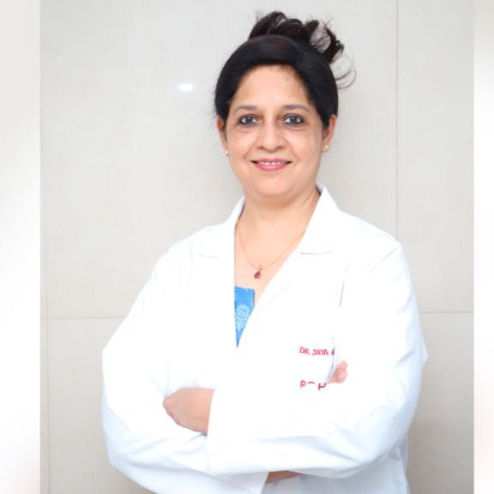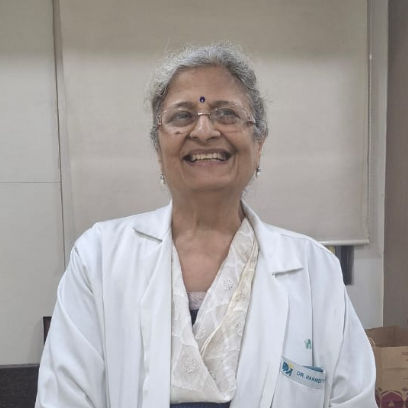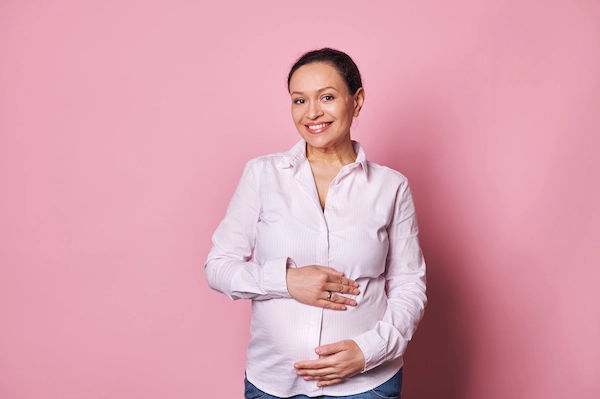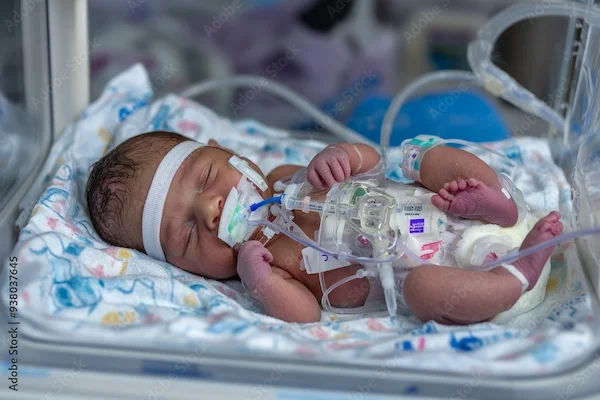Guide to Planning Baby 40 What You Need Know
Prepare for parenthood with this ultimate 40-step baby planning guide. From preconception health and fertility tips to finances and emotional readiness, start your journey confidently.

Written by Dr. Dhankecha Mayank Dineshbhai
Reviewed by Dr. Vasanthasree Nair MBBS
Last updated on 13th Jan, 2026

Introduction: More Than Just a Positive Test
Deciding to start a family is one of life's most exciting milestones. But the journey to parenthood begins longer than the first positive pregnancy test. Planning for a baby is a holistic process that encompasses your physical health, emotional well-being, financial stability, and relationship strength. Think of it as laying the strongest possible foundation for your future child. This comprehensive guide breaks down this momentous journey into manageable phases, offering a 40-step checklist to ensure you and your partner feel informed, prepared, and confident. Whether you're just starting to think about a family or are ready to begin trying, this article will walk you through everything from preconception doctor's visits and essential nutrients to financial planning and emotional readiness. Our goal is to empower you with knowledge, turning anxiety into action and helping you navigate the path to pregnancy with clarity and support. Let's dive into the essential steps for a healthy pregnancy and a happy baby.
Phase 1: The Preconception Period (3-12 Months Before)
This phase is all about laying the groundwork. A healthy pregnancy starts with healthy parents.
Schedule a Preconception Checkup with Your Doctor
Your first and most crucial step is to schedule a preconception checkup with your gynaecologist or a healthcare provider. This visit is not just a formality; it's a proactive step to address any potential issues before they can affect a pregnancy.
What to Discuss at Your Appointment: Come prepared with your and your family’s medical history. Discuss any
chronic conditions (like diabetes or thyroid issues), current medications, your menstrual cycle, and any previous pregnancies. Your doctor will likely recommend a physical exam, a Pap smear, and routine blood tests to check for immunity to diseases like rubella and chickenpox. If you have any underlying health concerns, a doctor from Apollo24|7 can provide a convenient initial consultation to guide your next steps.
Optimising Your Diet for Fertility and Health
What you eat directly impacts your fertility and the early developmental environment for your baby.
Key Nutrients for Conception: The superstar of preconception care is folic acid. Taking at least 400 mcg daily for at least one month before conception significantly reduces the risk of neural tube defects. Incorporate a balanced diet rich in iron (leafy greens, lean meat), calcium (dairy, fortified plant milk), and omega-3 fatty acids (fatty fish, walnuts). Consider starting a prenatal vitamin to fill any nutritional gaps.
Establishing a Healthy Lifestyle Foundation
Your daily habits play a significant role in your fertility health.
The Impact of Weight on Fertility: Being significantly underweight or overweight can disrupt hormonal balance and
ovulation. Aim for a healthy BMI through a combination of a balanced diet and regular, moderate exercise.
Quitting Smoking and Limiting Alcohol: Smoking severely impacts fertility for both men and women and can harm a
developing foetus. It's best for both partners to quit. Similarly, alcohol can reduce fertility, so most experts recommend eliminating or severely limiting consumption when actively trying to conceive.
The Partner's Role: His Health Matters Too
Fertility is a two-person endeavor. Sperm health—affected by diet, lifestyle, and environmental factors—contributes to about 40-50% of infertility cases. Partners should also focus on a healthy diet, avoid smoking, limit alcohol, and manage stress. For a thorough check, Apollo24|7 offers convenient home collection for tests like semen analysis, making the process discreet and easy.
Consult an Obstetrician-Gynaecologist for the best advice
Phase 2: The Active Trying Phase (0-3 Months Before)
Now that you've built a healthy foundation, it's time to understand the mechanics of conception.
Understanding Your Menstrual Cycle and Ovulation
Conception is only possible during a short "fertile window" each month. This window includes the 5 days before ovulation and the day of ovulation itself. Ovulation typically occurs about 14 days before your next period starts.
Tracking Fertility: Methods and Tools
You can identify your fertile window through several methods:
- Calendar Tracking: Charting your cycle length over several months.
- Ovulation Predictor Kits (OPKs): These detect the luteinising hormone (LH) surge that precedes ovulation by 24-36
hours. - Basal Body Temperature (BBT) Charting: Your resting temperature rises slightly after ovulation.
- Cervical Mucus Monitoring: Fertile mucus becomes clear, slippery, and stretchy (like egg whites) around ovulation.
Timing Intercourse for the Best Chance of Conception
Aim to have sex every other day during your fertile window. Sperm can live inside the female reproductive tract for up
to 5 days, so having sperm already waiting when the egg is released gives you the highest probability of successfully getting pregnant.
Phase 3: Financial and Practical Preparation
A new baby brings joy, but also new expenses. Planning ahead reduces financial stress.
Creating a Baby Budget: Anticipating Costs
Start researching the costs of prenatal care, delivery, diapers, childcare, and baby gear. Create a new budget that accounts for these expenses and allows for savings. This is a critical part of financial planning for a new baby.
Understanding Your Health Insurance and Maternity Leave
Review your health insurance policy to understand what prenatal, delivery, and postnatal care is covered. Investigate
your company's maternity and paternity leave policies. Knowing your benefits allows you to plan for any unpaid time off.
Phase 4: The Emotional Journey
The path to pregnancy can be an emotional rollercoaster. Prioritise your mental health.
Strengthening Your Partnership
Open communication is key. Discuss your hopes, fears, and expectations about parenthood. Make time for each other outside of the "trying to conceive" bubble to keep your connection strong.
Managing Stress and Expectations
It's normal for conception to take time—even for healthy couples. Only about 30% conceive in the first month. Practice stress-reduction techniques like yoga, meditation, or walking. If you feel overwhelmed, don't hesitate to seek support from a counselor.
When to Seek Help: Understanding Fertility
If you're under 35 and haven't conceived after one year of unprotected sex, or if you're over 35 and haven't conceived after six months, it's advisable to consult a fertility specialist. If you have irregular cycles, known health conditions, or are concerned, you can consult a gynaecologist online with Apollo24|7 for an initial evaluation.
Conclusion: Embarking on Your Parenting Journey with Confidence
Planning for a baby is a profound act of love and responsibility. By taking these proactive steps—caring for your physical health, getting your finances in order, and nurturing your emotional well-being—you are not just increasing your chances of conception; you are creating a stable, loving environment for your future child. Remember, this is a journey you and your partner are on together. Be patient with your body and with each other. Celebrate the small steps and focus on the health and strength of your partnership. Armed with this knowledge and checklist, you can move forward with confidence, ready to embrace the incredible adventure of parenthood.
Consult an Obstetrician-Gynaecologist for the best advice
Consult an Obstetrician-Gynaecologist for the best advice

Dr Abdul Basith
Infertility Specialist
15 Years • MBBS & MD (OG) & MRCOG in UK & PD-FRM
Chennai
Apollo Women Hospitals Thousand Lights, Chennai
(25+ Patients)

Dr. Karuna Ratwani
Obstetrician and Gynaecologist
11 Years • MBBS, MS( Obstetrics & Gynaecology), F.MAS, FICRS Advanced Diploma in Minimal Access surgery Fellow of International College of Robotic Surgeons Diploma in Reproductive Medicine, Kiel-Germany Masters in Cosmetic Gynaecology , Greifswald-Germany Masterclass in Obstetrics & Gynaecology Ultrasound ( ISUOG, UK)
Delhi
Apollo Hospitals Indraprastha, Delhi
(25+ Patients)

Dr. K Sandhya
Obstetrician and Gynaecologist
18 Years • MBBS, DNB (OBGYN)
Chennai
Apollo First Med Hospitals P H Road, Chennai

Dr Jaya Kumar Agarwal
Obstetrician and Gynaecologist
25 Years • MBBS , DGO , DNB (obstetric and gynecology) DGE diploma in Gyne endoscopy (Germany )
Delhi
Apollo Hospitals Indraprastha, Delhi

Dr. Harmeet Malhotra
Obstetrician and Gynaecologist
44 Years • MBBS, MD, DGO, FICOG
Delhi
Apollo Hospitals Indraprastha, Delhi
(25+ Patients)
Consult an Obstetrician-Gynaecologist for the best advice

Dr Abdul Basith
Infertility Specialist
15 Years • MBBS & MD (OG) & MRCOG in UK & PD-FRM
Chennai
Apollo Women Hospitals Thousand Lights, Chennai
(25+ Patients)

Dr. Karuna Ratwani
Obstetrician and Gynaecologist
11 Years • MBBS, MS( Obstetrics & Gynaecology), F.MAS, FICRS Advanced Diploma in Minimal Access surgery Fellow of International College of Robotic Surgeons Diploma in Reproductive Medicine, Kiel-Germany Masters in Cosmetic Gynaecology , Greifswald-Germany Masterclass in Obstetrics & Gynaecology Ultrasound ( ISUOG, UK)
Delhi
Apollo Hospitals Indraprastha, Delhi
(25+ Patients)

Dr. K Sandhya
Obstetrician and Gynaecologist
18 Years • MBBS, DNB (OBGYN)
Chennai
Apollo First Med Hospitals P H Road, Chennai

Dr Jaya Kumar Agarwal
Obstetrician and Gynaecologist
25 Years • MBBS , DGO , DNB (obstetric and gynecology) DGE diploma in Gyne endoscopy (Germany )
Delhi
Apollo Hospitals Indraprastha, Delhi

Dr. Harmeet Malhotra
Obstetrician and Gynaecologist
44 Years • MBBS, MD, DGO, FICOG
Delhi
Apollo Hospitals Indraprastha, Delhi
(25+ Patients)
More articles from pregnancy
Frequently Asked Questions
1. How long does it typically take to get pregnant?
For most healthy couples, it can take up to a year. About 85% of couples conceive within 12 months of trying. Age, health, and cycle regularity are significant factors.
2. What are the best vitamins to take before pregnancy?
A prenatal vitamin containing at least 400 mcg of folic acid is essential. Other important nutrients include iron, calcium, vitamin D, and omega-3s (DHA).
3. Does the man need to do anything when planning for a baby?
Absolutely. A partner's health is crucial. He should also aim for a healthy weight, eat a balanced diet, avoid smoking and excessive alcohol, and consider taking a multivitamin with zinc and selenium to support sperm health.
4. When should I take a pregnancy test?
Wait until the first day of your missed period for the most accurate result. Testing too early can lead to a false negative. If your period is irregular, wait at least 2-3 weeks after you had sex.
5. Is it necessary to stop drinking coffee when trying to conceive?
Most experts agree that moderate caffeine intake (less than 200 mg per day, about one 12-ounce cup of coffee) is acceptable. However, high caffeine consumption may be linked to fertility issues.




